The reliability of a backup solution can be the difference between comfort and chaos during unplanned power outages. Diesel generators have become a popular option for homeowners seeking a reliable standby power source. But what are the qualities that make diesel generators different, and how do you get the right one for your needs? This detailed guide explores the main pros and cons, factors, and advice for buying and keeping a diesel generator for home use. If you want to protect your home from storms, safeguard expensive appliances, or just have peace of mind during unplanned outages, this article will give you the information you need to make a smart choice.
Understanding Diesel Generators
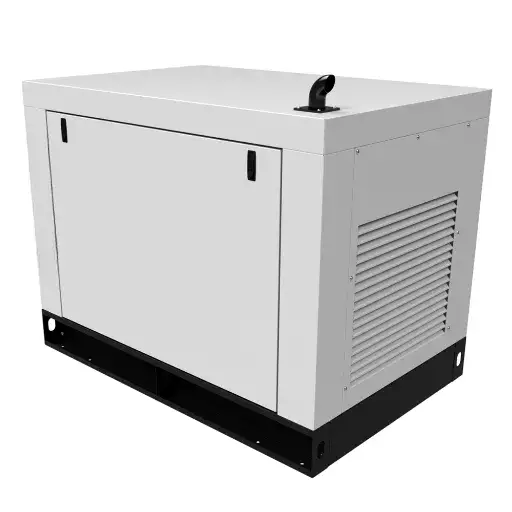
Diesel generators are dependable power sources that, via an internal combustion engine and an alternator, convert diesel fuel into electricity. Their excellent performance and resilience make them the most common choice for generator-powered electrical supply during blackouts and outages. They have the longest lifespan and are thus the most cost-effective among power source types for both domestic and commercial use. However, when choosing a diesel generator, one must consider not only the power output but also fuel consumption, noise levels, and maintenance requirements to ensure it will serve your purpose.
What is a Diesel Generator for Home Use?
The diesel generator for home use is a reliable power solution that provides electricity from the grid or during outages in areas without a power source. Electricity is generated here by a diesel engine coupled to an alternator. Diesel Generators are preferred for their fuel efficiency, durability, and consistent power supply, making them an attractive option for residential customers.
📊 Key Statistics
- Power Output Range: Residential diesel generators typically range between 5kW and 50kW based on house size and electricity needs
- Modern Features: Sound-proofing, remote control and monitoring, and automatic start capabilities
- Environmental Compliance: Designed to meet the strictest emission regulations
When choosing a diesel generator for your home, consider factors such as fuel availability, generator size, and installation requirements to find the most suitable power source for your family.
How Diesel Generators Work
The working of a diesel generator involves changing the chemical energy in the diesel fuel to mechanical energy which is then changed into electrical energy. This is done when the engine starts burning the diesel causing a reaction that creates power in the form of a moving shaft. The crankshaft is connected to the generator’s alternator. The electromechanical device consists of rotor and stator which interact with the help of a magnetic field and the result is the electricity generation.
⚙️ How It Works: Step-by-Step
- Diesel fuel undergoes combustion in the engine
- Combustion creates mechanical energy (moving crankshaft)
- The crankshaft connects to the alternator
- Alternator’s rotor and stator create a magnetic field
- Magnetic interaction generates electrical energy
- Control panels regulate power output and operating conditions
The maintenance for these generators includes checking and adjusting the fuel systems, evaluating battery performance, and replacing air filters to ensure continuous operation at full capacity.
Benefits of Using Diesel Generators for Home Use
🔒 Reliability
Excellent reputation for reliability; provides uninterrupted power supply during outages, making them ideal for home backup systems.
⛽ Fuel Efficiency
Diesel engines use fuel more efficiently than gasoline engines, helping reduce total fuel consumption and operational costs.
⏱️ Longevity
Built to be durable and long-lasting, with proper maintenance, they can serve you reliably for many years.
⚡ High Power Output
Can handle larger power loads, making them the best choice for operating essential home appliances and systems simultaneously.
🔧 Low Maintenance
Modern diesel generators require lower maintenance due to their sturdy construction and fewer spark-ignition components.
Types of Diesel Generators
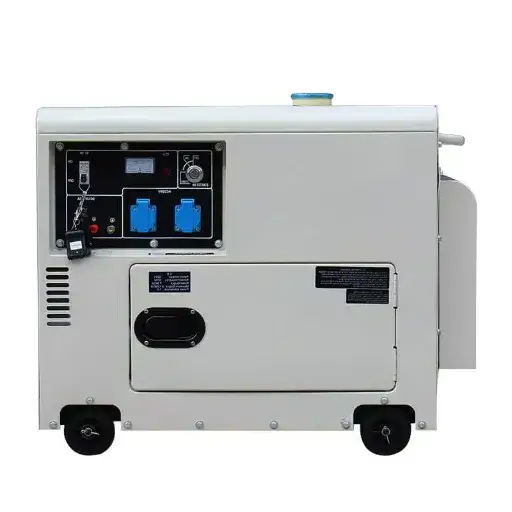
Diesel generators can be classified into portable, standby, industrial, and residential types. Each type serves different purposes and power requirements.
| Type | Key Feature | Use Case | Power Range | Mobility |
|---|---|---|---|---|
| Portable | Compact design | Outdoor/Tools | Low to Medium | High |
| Standby | Backup power | Homes/Businesses | Medium to High | Low |
| Industrial | Heavy-duty | Large facilities | Very High | Low |
| Residential | Small-scale | Homes/Small units | Low to Medium | Moderate |
Standby Generators vs. Portable Generators
Standby generators offer permanent, high-power backup for homes and businesses, while portable generators are mobile, cost-effective, and suitable for temporary use.
| Parameter | Standby Generators | Portable Generators |
|---|---|---|
| Power Output | High | Low to Medium |
| Installation | Permanent | Temporary |
| Mobility | Fixed | High |
| Fuel Options | Natural gas/Propane | Gasoline/Diesel |
| Cost | Expensive | Affordable |
| Noise | Low | High |
| Activation | Automatic | Manual |
| Use Duration | Long-term | Short-term |
| Maintenance | Regular upkeep | Minimal upkeep |
| Capacity | Large-scale | Small-scale |
Whole House Diesel Generators
Whole-house diesel generators are the most dependable option for delivering uninterrupted power during a blackout. They can cover all necessary household electronics and systems and ensure the whole operation. Besides, diesel generators are characterized by their long lifespan and low fuel consumption, making them very suitable for the long term. These generators will usually require routine servicing; however, they are also very durable. Although the initial investment is generally higher for these generators than for portable ones, their consistent performance, high power output, and long lifespan make them a good choice for homeowners seeking a powerful, reliable backup power source.
Cummins Generators: Features and Advantages
Cummins generators have a reputation for excellent performance and state-of-the-art engineering; thus, they are the most popular option for power solutions in homes and commercial buildings alike. The remote monitoring feature of Cummins generators is a very remarkable one that utilizes the latest technology. This feature allows users to oversee performance, fuel levels, and maintenance requirements through mobile or web applications. Consequently, there is a guarantee of utmost efficiency and the possibility of having downtime is minimized as well. Besides, these generators come with soundproof enclosures, thus, the noise during operation is very much reduced; this is primarily an advantage in the case of residential areas.
✅ Cummins Generator Advantages
- Remote Monitoring: Track performance, fuel levels, and maintenance needs via mobile/web apps
- Soundproof Enclosures: Reduced noise levels ideal for residential areas
- Multi-Fuel Capability: Compatible with diesel, natural gas, or propane
- Maximum Fuel Efficiency: Engineered for optimal fuel consumption while maintaining full power output
- Robust Construction: Longer lifespan with reduced emissions meeting modern standards
Choosing the Right Diesel Generator for Your Home
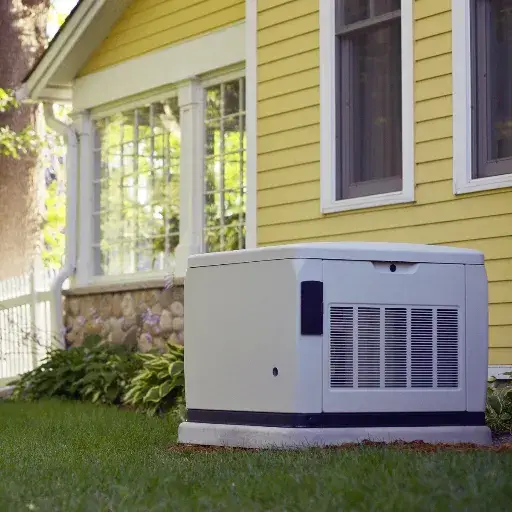
When choosing the best diesel generator for your home, consider your power demand, fuel economy, and price as the main factors. Make a list of the total wattage needed to power the essential appliances and systems in case of a power cut, and pick a generator that can handle it. Also, pay attention to features such as the generator being quiet, easy to maintain, and meeting emission standards. Besides, make sure the generator’s size and design won’t be a problem for the space you have, and count on well-known brands like Cummins for the best in reliability and durability.
Assessing Your Power Needs
Determining your power needs accurately is the most critical first step when choosing a generator. Make a list of the appliances and systems that are important to you and require power during an outage—for example, refrigerators, lights, heating or cooling systems, and medical equipment. Wattage requirements for each item should be checked and they can usually be found on the labeling or in the manuals of the items. The next step is to sum these wattages to arrive at the total wattage needed and you should add a cushion of 15-20% for any unexpected or starting power requirements. With this methodology, your generator will be able to carry the load without working too hard.
💡 Power Assessment Tips
- List all essential appliances and systems (refrigerators, lights, HVAC, medical equipment)
- Check wattage requirements on labels or manuals
- Calculate total wattage needed
- Add 15-20% cushion for unexpected or starting power requirements
- Select a generator that can handle the total load comfortably
Understanding Size and Noise Levels
Power output capacity of a generator is indicated by its size which is the most important factor among others when selecting a generator. The size of the generator should correspond to the wattage requirements you have calculated from the appliances you are going to get power from in case of a blackout. A portable generator has a wattage of around 1,000 to 10,000 watts, while standby generators can provide even more power, enough to supply the whole house with electricity.
The other aspect is the generator’s power and noise levels, measured in decibels (dB). This is also an essential factor to consider, particularly in places of residence or when camping. The most silent models usually work around 50–60 dB, which is the same as having an everyday conversation, while the noisier ones may give out over 70 dB which might bother the people around them. One of the best ways to achieve good generator performance is through advanced technology and noise-reduction methods; therefore, it’s no wonder the market for such generators has been growing steadily. The benefit of having such technology is that the generator can power up to meet demand without being too loud.
🔊 Noise Level Guide
- 50-60 dB: Equivalent to everyday conversation (Silent models)
- 70+ dB: May disturb neighbors and household members
- Recommendation: Look for generators with advanced noise-reduction technology
Evaluating Starting Mechanisms
When considering the starting mechanisms of a generator, think about how easy they are to use, their reliability, and how well they align with your personal preferences. Accomplished starting methods are manual recoil starts, electric starts, and remote starts.
⚡ Electric Start
User-friendly but requires a charged battery to work—Push-button convenience for easy operation.
📱 Remote Start
Most convenient option. Start the generator from afar, helpful in harsh weather conditions or for added comfort.
Go with the starting mechanism that best fits your requirements and provides reliable operation in all situations.
Installation and Setup
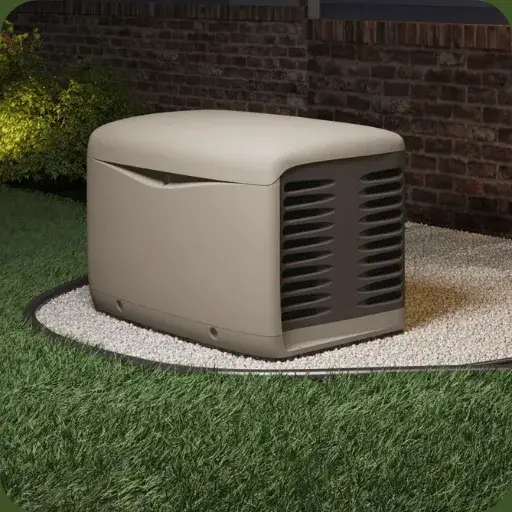
Preparing Your Home for a Diesel Generator
If I were to prepare my house for a diesel generator, choosing a proper spot for the unit would be my first step. The location should be open and outdoor so that no toxic gases can form with the exhaust. I would like to know whether any local regulations or permits are required to install the generator. Meanwhile, I would ask a professional electrician to install a transfer switch, which enables safe, practical power switching during blackouts. It is imperative that the generator sits on firm, even ground and is not far from the fuel supply for uninterrupted working and quick fueling. To ensure breakdowns caused by the generator are infrequent, I would set up a maintenance schedule to keep it running and in good condition for years to come.
Installation Process Overview
📋 Installation Checklist
- Research and Secure Permits: Investigate local regulations and obtain necessary permits for generator installation
- Hire a Certified Electrician: Have a professional set up a transfer switch for safe power switching between generator and grid
- Position the Generator: Place on sturdy, flat ground close to fuel source for easy access
- Develop Maintenance Routine: Create a schedule to keep the generator in good working order and reliable for the long term
Generator Enclosure and Fuel Tank Considerations
When choosing a generator for a protective cabinet, consider that it is not only weatherproof but also durable and has sufficient airflow to prevent overheating. The cabinet must also be able to absorb sound while protecting the generator from the elements. For the fuel tanks, it is best to choose a unit that holds enough fuel to run your generator without worrying about available storage space. Make sure the fuel tank is made of a material that is resistant to rust and is also compliant with the local safety regulations so that the risks involved are minimized. Both the enclosure and the fuel tank should be regularly checked for wear and tear and serviced in accordance with the manufacturer’s recommendations. Sound installation and maintenance are indispensable for the safe and efficient operation of a generator.
🏠 Enclosure Requirements
- Weatherproof and durable construction
- Sufficient airflow to prevent overheating
- Sound absorption capabilities
- Protection from environmental elements
⛽ Fuel Tank Requirements
- Adequate capacity for extended operation
- Rust-resistant materials
- Compliance with local safety regulations
- Regular inspection for wear and tear
Maintenance and Safety
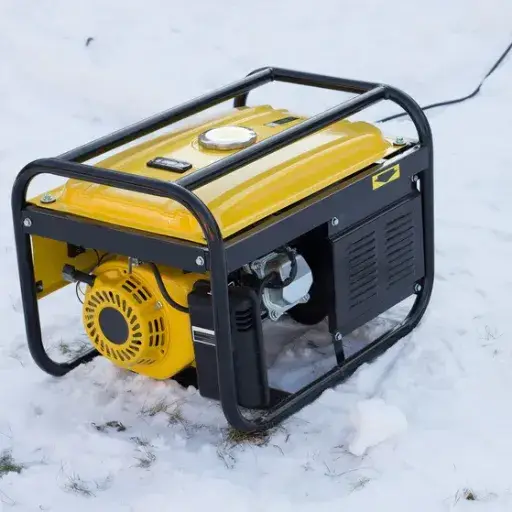
Routine Maintenance for Diesel Generators
To keep your diesel generator running strong and lasting longer, regular maintenance is key. The main maintenance activities are as follows:
🛢️ Oil and Filter Changes
Always check the oil and its level and change the oil and the filters using the schedule recommended by the maker to keep the engine working in the best way possible.
❄️ Cooling System Inspection
Always keep an eye on the coolant levels and check the radiator for any leaks or blockages. You may also want to clean the radiator surface to ensure effective cooling.
⛽ Fuel System Maintenance
Change the fuel filters and empty the fuel tank from time to time to remove sediment and water that may have collected.
🔋 Battery Check
Make sure your battery has enough charge by testing it and cleaning the terminals, as this will help prevent corrosion and ensure the battery starts when needed.
💨 Exhaust System Inspection
Inspect the exhaust system for leaks, blockages, or damage, and ensure the area is well ventilated.
🌬️ Air Filter Cleaning or Replacement
The air filter should be regularly checked and cleaned, and, if necessary, replaced to reduce strain on the engine.
Important: The power and the efficiency of the generator will be increased and the cost of repairs will be reduced if you carry out these checks often and promptly fix the issues. Always check the manufacturer’s manual for the specific maintenance intervals and procedures.
Safety Tips When Using Diesel Powered Generators
⚠️ Critical Safety Guidelines
🌬️ Ensure Proper Ventilation
Avoid the accumulation of harmful carbon monoxide by always running the generator in a well-ventilated area. Indoor or confined-space use is strictly prohibited.
⛽ Refuel with Caution
Prevent potential fire accidents by turning off the generator and letting it cool down before refueling, as spilling fuel on hot surfaces can pose a fire hazard.
🔥 Keep Away from Flammable Materials
Fire hazards should be minimized by placing the generator on a solid, level surface and keeping it away from combustible materials.
🔌 Use Proper Extension Cords
To prevent electrical overloads, only heavy-duty, outdoor-rated extension cords with sufficient wattage should be used for connecting appliances.
🔍 Perform Regular Inspections
Regularly inspect for fuel leaks, frayed wires, or loose connections, and take immediate corrective actions to ensure safety while operating.
Common Issues and Troubleshooting
🚫 Generator Will Not Start
- Make sure that the fresh and clean fuel fills the fuel tank
- Confirm the oil level, and if it is below the recommended level, add oil
- Check if the choke is placed correctly for starting
- Examine the spark plug for any damage or wear, and if it is necessary replace it
⚡ Generator Runs but Does Not Produce Power
- See if the circuit breakers in the generator are tripped; reset them if needed
- Make sure that all connections are secure and that there are no damaged extension cords
- The generator has to be running long enough to activate its voltage regulator
🔥 Overheating
- The generator should be located in an area with good ventilation and airflow.
- Intake or vent areas should be free of any debris.
- The generator should not be overloaded, and the power should be kept within the rated capacity
🔊 Unusual Noise or Vibration
- Generator should be stopped and inspected for loose bolts or components
- Generator should be positioned on a surface that is both stable and level
- Engine and mounting area should be checked for any signs of damage
💧 Fuel or Oil Leaks
- Generator should be switched off and hoses, gaskets, and seals should be checked for leaks
- Replace parts that are worn out or broken immediately
Note: If the problem persists after troubleshooting, refer to the user manual or contact a skilled technician for assistance.
Reference Sources
-
Best Diesel Generator for Home: A Complete Guide – This guide explores various diesel generator options for home backup, including silent and whole-house models.
-
How Generators Work: A Guide for Homeowners – Provides an overview of standby generators, their installation, and operation for homeowners.
-
An Overview of Standby Power Management in Electrical Systems – A scientific paper discussing standby power consumption and management strategies.
-
What You Need to Know About the Types of Standby Power Systems – Covers different types of backup power systems, their applications, and design considerations.
-
Literature About Standby Power – A collection of research publications related to standby power, including innovative solutions and technologies.
Frequently Asked Questions (FAQs)
❓ What is a whole house generator and how does it work?
A whole-house generator is a standby electrical generator type that supplies power to a whole house during an outage. The generator comes with an automatic transfer switch (ATS) that detects a power outage, starts the generator, and keeps household appliances and systems running without interruption.
❓ What are the benefits of diesel standby generators for home use?
A standby diesel generator is known for its fuel efficiency and reliability. The generator performs excellently in terms of long-term power provision and is therefore the best choice for supplying power to essential systems during extended outages. Moreover, diesel generators generally have lower long-term operating costs than gasoline-powered ones.
❓ How do I select the best diesel generator for my home?
Choosing a stylish diesel generator starts with identifying your specific power needs, including your home’s total electrical load. After this, examine the generator’s power rating (kW), fuel tank capacity, and running time.
❓ What are the fuel types used in home diesel generators?
The primary fuel for home generators is diesel, a fuel type valued for its economy and efficiency. However, some generators may be clean enough to burn oil, gas, or propane while still delivering the same power as a diesel unit.
❓ What is the typical noise level of diesel generators for home use?
Noise levels from diesel generators do not disturb the surrounding area because many modern generators come with sound-insulated enclosures. While operating, the top models produce sound levels up to 65 dB or lower, making them a good fit for noise-sensitive residential areas.
❓ How do I determine the right kW rating for my home generator?
Begin the determination of the right kW rating for your generator by totaling the wattage of all the appliances and systems you intend to power during an outage. Generally, a generator set of 20kW to 30kW is a good fit for most households, however, it is prudent to calculate your needs based on the electrical load.
Final Thoughts
Investing in a diesel generator for your home is a decision that brings peace of mind and security during power outages. By understanding the different types, assessing your power needs, and following proper installation and maintenance procedures, you can ensure reliable backup power for years to come. Whether you choose a portable unit for occasional use or a whole-house standby generator for complete protection, diesel generators remain one of the most dependable and cost-effective solutions for residential backup power.
